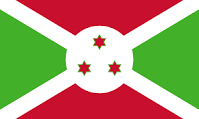
Despite its small size, Burundi is home to roughly 600,000 – 800,000 coffee-producing families in five different regions. Coffee started as a cash crop here during the time spent as a Belgian colony in the 1930s. Once the country gained independence in 1962, the World Bank assisted the government in allocating resources to plant more coffee and construct washing stations. Coffee production grew until the breakout of the civil war in 1993, that lasted until 2003. This led to the abandonment of coffee farms, and destruction of numerous coffee trees. It also grew increasingly more difficult to transport coffee out of the landlocked country. When the civil war finally ended in 2005 and a new president was elected – more attention was focused on coffee production. Today, Burundi has become a small but significant contributor to the East African coffee market.